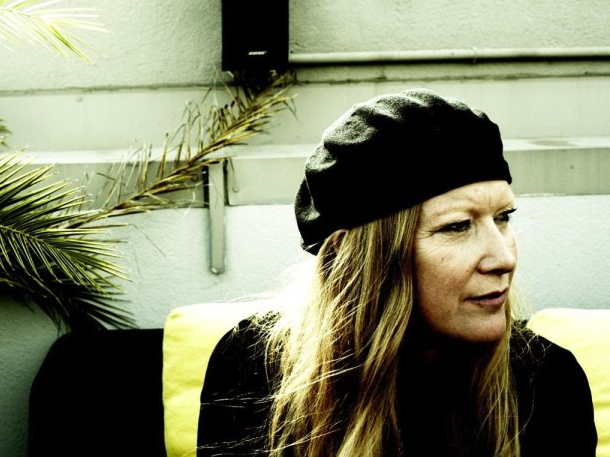Fish Tank and Wuthering Heights director Andrea
Arnold recently spent over a month in the U.S. as the first filmmaker-in-residence at the Film Society of Lincoln Center. Her residency coincided with
the most recent New York Film Festival. She answered some questions via e-mail for Women and Hollywood upon her departure
from the U.S about her experience.
Women and Hollywood: So
how was your experience as the first Film Society of Lincoln Center
Filmmaker in Residence?
Andrea Arnold: It
involved a lot of different things. Getting feedback on my new script from some
New York mentors. Talking to kids making films in schools. Posh dinners at Lincoln Center. Doing Karaoke in Coney Island. Making notes for my second
draft. Getting lost on my bike daily in Manhattan. Being wrestled physically
onto the red carpet to have my photo taken at Lincoln Center. Seeing films at
New York Film Festival. Arguing about films at parties after. Talking about my own
work to an audience. Walking those great bridges over the Hudson. More posh
dinners at Lincoln Center. Two-step dancing at the Big Apple Ranch. Laying in
the grass on Roosevelt Island and marveling that you could hear insects. Starting
the second draft of my script. Getting to know my new producers Jay Van Hoy and
Lars Knudsen. Meeting lots of crew for my new film. Riding the Staten Island
ferry. Researching a documentary idea I have about America. I did a lot. I got
to know New York and when I come back to make my film, I will not feel like a stranger
there.
WaH: Did
you notice a different kind of film sensibility here than there is in Europe?
AA: I
was in film school in LA some years ago and I loved it. Loved the enthusiasm.
There was a can-do attitude that I really responded to. But I haven’t made
anything in America yet. I think I will be able to answer that better when I
have actually made a film here. Can you ask me next year?
WaH: I
know you are shooting your next film in NY. Can you give us a bit of
information of what the film is about?
AA: I
might shoot a bit of the film in New York. But mostly it’s about middle America. I am
never one to speak much about works in progress, but it’s a road movie about
runaway kids selling magazine subscriptions around the U.S. Runaway teenagers
selling door-to-door. I have been nursing this project for several years after
seeing an article in the New York Times. It’s going to involve lots of wild
kids, Rihanna and a bear.
WaH: You’ve
done some events in NY with young people. How was the reaction here to Fish
Tank?
AA: They
watched a short I made called “Wasp” before I went and the teachers told me that
it created a very noisy debate before I arrived.
WaH: When
you were on the Cannes jury in 2012 there was some controversy about the lack
of women directors in competition. Do you have any thoughts as to why this is
still such a problem in the business?
AA: I
have been asked this question so many times and I can never come up with an
easy answer. There are plenty of woman in the film industry in positions of
power. Financiers, producers, writers, but less directors. I do not know why
this is. But it’s not just a film industry issue.
WaH: What
do you think the biggest challenges are over the next five years for
the film business?
AA: When
I was in New York I heard many people saying that the independent film industry was
in big trouble. I was reflecting on this when I came home. Realizing that ever
since I started filmmaking, people have being saying that. But somehow it keeps
going. Filmmakers keep going. We need stories to make sense of the world and
some people like me are driven to tell them. I have faith this will always be
possible.
WaH: What
advice do you have for female filmmakers?
AA: Sleep
your way to the top.






